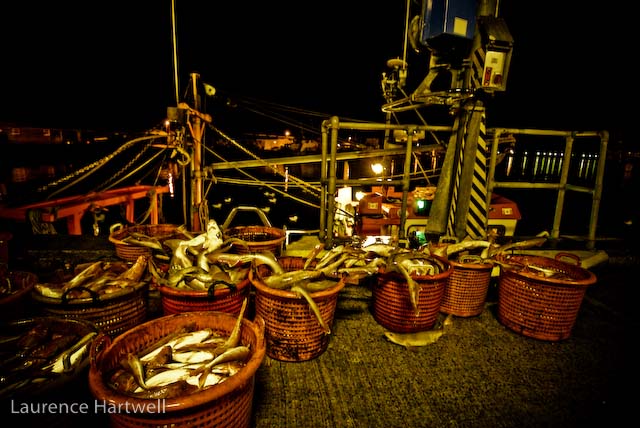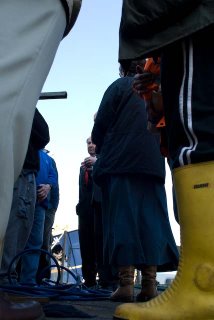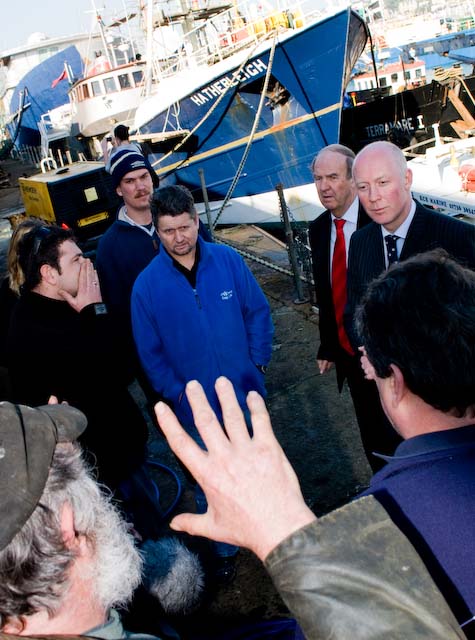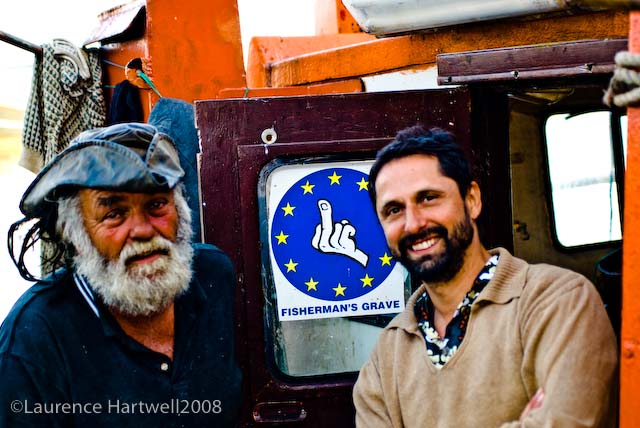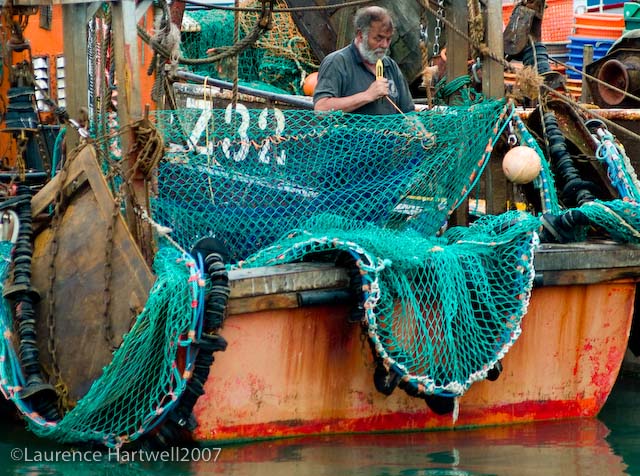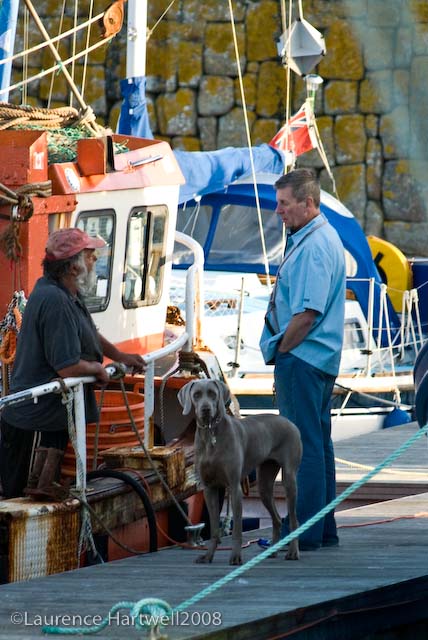There has to be something wrong when a species - cod - which accounts for less than 0.5% of landings in the South-West is the main determinant of TAC decisions across a whole range of commercially important demersal species. The suppression of TACs in fisheries that also catch minimal quantities of cod amounts will lead to a loss of hundreds of thousands of pounds worth of lost fishing opportunities in 2022. The TACS for a range of species have been artificially set below the ICES single stock advice, ostensibly to protect cod. Yet, the environmental changes and distributional shifts that are underway and obvious alterations in the catch compositions cannot be held back Canute-like. Fisheries management decisions appear to be devoid of any coherent strategy to deal with this evolving reality. That this outcome has been imposed after large parts of the industry in the south-west have taken the lead in pressing for a mesh size increase (from 80mm to 100mm) in part to improve selectivity on cod is likely to set back meaningful collaboration on future conservation initiatives.
It is not fair or reasonable to pile all the blame on EU rigidity for this outcome. Although what happened in the negotiating chamber has been utterly opaque, all the signs are that UK ministers took the lead in promoting a hardline approach, presumably to placate the environmental lobby. This does not amount to a coherent or convincing approach to doing what can be done to maintain cod stocks during a period of rapid environmental change whilst maintaining viable fisheries on other stocks. Following these negotiations, the phrase mixed fishery approach, will take on new meaning. Out will go an understanding of the phrase as a pragmatic approach to rebuilding a weak stock whilst maintaining fishing opportunities for associated stocks – to be replaced by the kind of discredited slash and burn policies seen in the past.
12 Months Under the TCA The UK fishing industry’s worst fears were realised
For all the latest news visit www.nffo.org.uk
The fisheries regime agreed as part of the Trade and Cooperation Agreement departed only marginally in terms of quota shares and access arrangements from the arrangement under the CFP. An imbalanced and exploitative arrangement lay at the heart of the Common Fisheries Policy and the TCA was not much better – except for mackerel - in terms of improved fishing opportunities.
The UK is now an independent coastal state in legal terms, but big power politics means that in fisheries terms we remain shackled to the EU under disadvantageous terms very far from the arrangements enjoyed by other coastal states.
Our frustration and disappointment at again being sacrificed by our own government was amplified when initially, this historic defeat was spun as a victory. In fact, the EU secured free access to fish in the UK EEZ, including the 6-12-mile zone until 2026, and the shift in quota shares came nowhere close to what a self-respecting coastal member state might expect under the principle of zonal attachment. Additionally, tonnage limits on fishing nonquota species in each other’s waters gave a massive advantage to the EU, replicating the distortions of the CFP.
The NFFO campaigned vigorously for an outcome in the TCA negotiations consistent with the UK’s new legal status and received solid assurances from the very top of government that fishing was an absolute priority. Being aware that governments sometimes don’t honour their promises the Federation spent £10,000 on flags which were displayed over thousands of fishing vessels in the summer and autumn of 2020, warning of the danger.
The terms of the TCA fall far short from our aspirations, but the TCA is not the CFP. • For a start, the UK has regulatory autonomy which will be used over time to evolve away from retained CFP rules which, at least for the time being, are embedded in UK law.
• Access to the 6-12-mile limit is conditional and limited to vessels that can demonstrate that they had fished there historically during a reference period • In trilateral and bilateral negotiations for annual fisheries agreements, the UK represents itself as an independent coastal state, not corralled as one member state amongst many.
• There have been some improvements in quota shares, although very far away from what would be justified by zonal attachment and very unevenly distributed across fleets
Despite our thwarted expectations and frustrations over government spin, regulatory autonomy is a real and significant change which will have impacts in the real world over time. The extraordinarily belligerence this autumn by the French government over the issue of licences to fish in UK waters, certainly involved posturing ahead of elections in France; it should also be understood in terms of political positioning to dissuade the UK from in future utilising its regulatory autonomy or interpreting the TCA in ways that are inimical to French fishing interests. Despite the threats, the UK’s decision to increase the mesh size in demersal trawls from 80mm to 100mm in the Western Channel and Celtic Sea to improve selectivity can be seen as a signal of the UK’s intention to forge its own path to sustainable fisheries management outside and beyond the CFP.
Government Spin Called Out
An objective official analysis, without spin, of the economic implications for the UK fishing industry of leaving the EU has not been forthcoming from government. The NFFO therefore commissioned a retired Defra official with direct experience of international fisheries negotiations to provide a best-guess analysis. The report which was published in October highlighted:
• The limited benefits of the additional quota secured by the UK under the TCA
• The significant amount of paper fish in the deal – that is quota that is there on
paper but is unfishable or otherwise of no economic benefit
• The uneven distribution of additional quota and the failure to secure additional quota of critical stocks
• The costs of failure to secure fisheries agreements with Norway or Faroes
• The additional costs of exporting fish and shellfish to the EU
• The potential losses from the TCA provisions on non-quota species
These points were not made to turn the clock back or to express buyer’s regret but to bring some objectivity and balance to understanding what has, and what has not been achieved.
The report concludes that unless the government does better in its negotiations, the fishing industry stands to be £300 million worse off, rather than £164 million better off by 2026, as claimed by Government. Non-Quota Species
The value of landings of non-quota species by the fleets in England and Wales slightly outweighs the value of landings of quota species. It is therefore of no small importance that the TCA permits EU vessels to fish 40,000 tonnes of non-quota species in UK waters whilst UK vessels are allowed to fish only 12,000 tones of non-quota species in EU waters.





